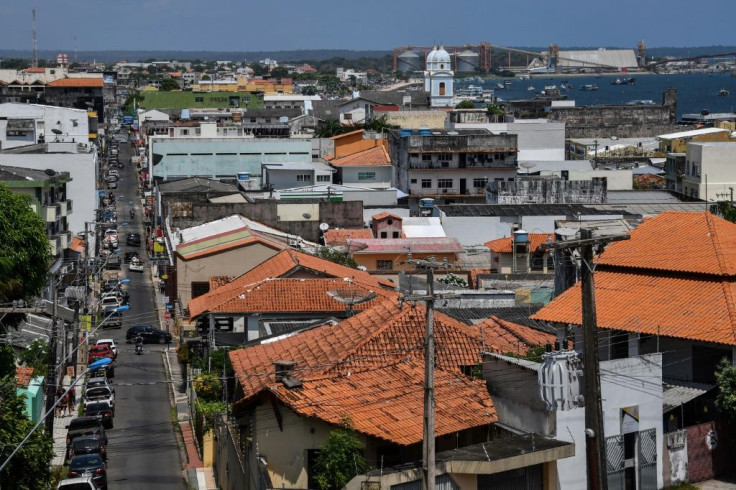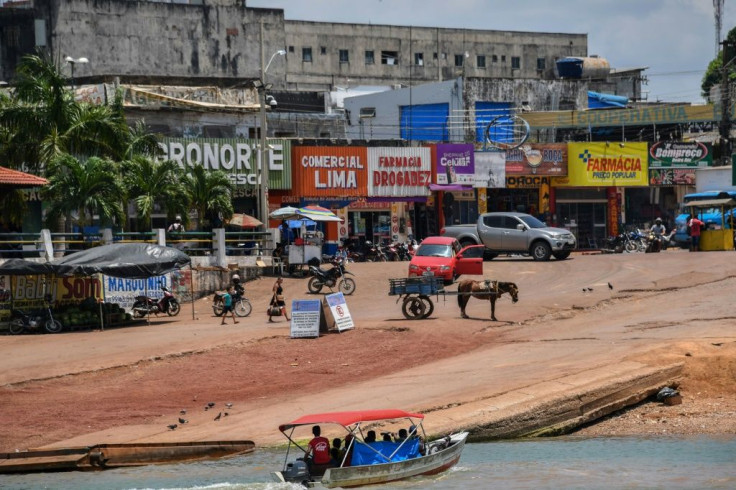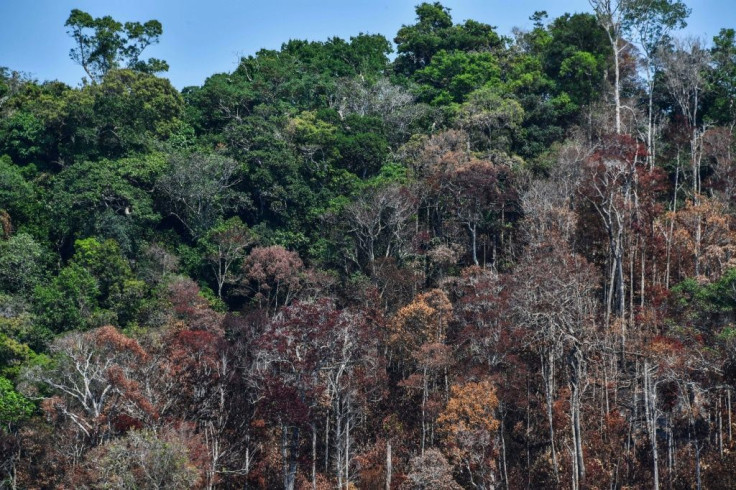Life Of Misery For Brazil's Amazon Pioneers

Maria Helena Locatelli was promised land and a better future in the Amazon rainforest, but all she got was misery when she arrived in northern Brazil in 1972 to start a new life.
Locatelli was part of a wave of pioneers who moved to the fringes of the Trans-Amazonian highway, after it was constructed by the military dictatorship to populate a region the regime saw as vulnerable to foreign invasion.
Under the slogan "Give land without men to men without land," the government promised the rural poor 100 hectares (250 acres) of land and a house if they moved to the rainforest.
Everyone believed the propaganda, recalls Locatelli -- until they arrived in the Amazon, where they discovered "there was nothing."
"It wasn't true, it was a big lie," says Locatelli, 71, who was living in Rio Grande do Sul when she and her ex-husband Orlando heard the government's call on the radio to occupy the Amazon, several thousand kilometers (miles) away.
Locatelli was 25 and pregnant with twins when the couple arrived in Para state with their two young children.

Conditions were dire. But having sold their home and everything in it, Locatelli says they could not afford to go back.
For months, they slept on a dirt floor in a shed with other new arrivals.
"There were people from Bahia, there were people from Ceara, Fortaleza, there were people from Rio Grande do Sul," Locatelli recalls.

Eventually they received a block of dense virgin forest near Ruropolis -- a three-hour drive from Santarem, where she now lives -- but the house and furniture promised by the government did not exist.
There was no running water, malaria was rife, and their crops failed.
"It was misery," says Locatelli.

"There was a lot of suffering. A lot of people died."
Others worse off
Locatelli's ex-husband bought a chainsaw to cut down trees on the block allocated to them and earned money by clearing land for others.
It was the start of widespread deforestation in the region that accelerated over the following decades as cattle breeders and grain growers pushed deeper into the rainforest.
Within a few months, Orlando was seriously injured in a tree-felling accident that killed another man, forcing Locatelli to become the family's breadwinner.
Despite only having a few years of primary school education, Locatelli enrolled in a teacher training course and worked at the roadside community's school.
Locatelli consoled herself that other families were worse off than hers.
"I had to stand firm and confront life," she says.
"I didn't let us starve."
While the years of hardship in the Amazon are etched deeply into her memory, Locatelli says she is sad to see the extent of this year's deforestation and fires.
Tree clearing in the Amazon nearly doubled in the first eight months, compared with the same period in 2018, to 6,404 square kilometers (about 2,470 square miles) -- more than twice the size of Luxembourg.
The pick-up in deforestation has been blamed for the sharp increase in fires that have ravaged swaths of the region and sparked an international outcry.
"My head is not the same as when I arrived. We depend a lot on the forest," Locatelli says.
"I've cried several times and asked God to help in some way so the forest isn't wiped out."
© Copyright AFP 2024. All rights reserved.





















